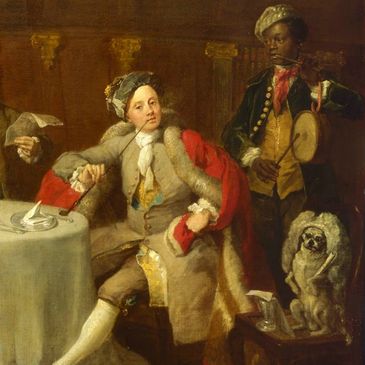LATEST - chiswick school Y12 RESEARCH ON BLACK SAILORS
.jpg/:/cr=t:5.8%25,l:0%25,w:100%25,h:87.63%25/rs=w:365,h:365,cg:true)
African Navigation: The Voyager King Abu Bakr II
African Navigation: The Voyager King Abu Bakr II
African Navigation: The Voyager King Abu Bakr II
'My predecessor did not believe that it was impossible to discover the furthest limit of the Atlantic Ocean and wished vehemently to do so.
He equipped 200 ships filled with men and provisions to last years. One ship returned, the Captain said they found a river in the sea, with a powerful current which the other ships had followed.
Th
'My predecessor did not believe that it was impossible to discover the furthest limit of the Atlantic Ocean and wished vehemently to do so.
He equipped 200 ships filled with men and provisions to last years. One ship returned, the Captain said they found a river in the sea, with a powerful current which the other ships had followed.
The Sultan (Abu Bakr II) took 2,000 ships, 1,000 for himself and his men and 1,000 for water and provisions.
He left me to deputize for him and embarked on the Atlantic Ocean. That was the last we saw of him and all those who were with him, and so I became king in my own right'
Mansa Musa
King of Mali Empire & richest man in the world, recorded in Cairo by Scholar Ibn Amir Hajib in 1324

European Empire, Trade and Colonisation
African Navigation: The Voyager King Abu Bakr II
African Navigation: The Voyager King Abu Bakr II
Since the 16th century the world’s oceans have been awash with European military,
merchant and pirate ships.
For much of this time, British ships ruled the seas, providing goods, communication and security across the Empire and its colonies.
Sailors and ship’s crews played a critical role in defending British interests abroad, both econom
Since the 16th century the world’s oceans have been awash with European military,
merchant and pirate ships.
For much of this time, British ships ruled the seas, providing goods, communication and security across the Empire and its colonies.
Sailors and ship’s crews played a critical role in defending British interests abroad, both economic and political.
Crews suffered huge losses
as a result of death, desertion and disease.
Black Seafarers were recruited by the Royal Navy, East India Company and private merchant ships from all along the African & American coastline.
‘Many Africans carried boating experience with them into slavery, knowledge that could later
help them to escape and make lives for themselves...
The African diaspora, born on the rolling waves of the Atlantic, became closely tied to the sea as both the scene of enslavement and liberation.’
Emma Christopher, African Sailors in the Atlantic World.

Black Sailors in London
African Navigation: The Voyager King Abu Bakr II
Black Sailors in London
Black sailors journeyed across the world. They formed a fluid and unfailing network of communication for Africans and African communities dispersed from one side of the globe to the other.
They became conduits of important information, kept families and communities connected,
maintained traditions and helped keep material culture accessib
Black sailors journeyed across the world. They formed a fluid and unfailing network of communication for Africans and African communities dispersed from one side of the globe to the other.
They became conduits of important information, kept families and communities connected,
maintained traditions and helped keep material culture accessible.
Some of these sailors left behind personal accounts, like Briton Hammond who describes accompanying a fleet of merchant ships from Jamaica to London.
Upon arriving he was transferred to three different ships before engaging in battle with a French gunship. 70 crew members were lost or wounded, including the captain who lost a leg. Hammond
received a small bullet wound in the head and was then wounded again in the arm before being discharged and taken to Greenwich Hospital.
Most Black sailors lived a transient life - moving from port to port across the oceans - a few,
like the enslaved Bermudians and free African Seafarers, returned to families and communities.
Of the others who were enslaved, many looked to Britain for a chance of freedom and a place to call home. Several hundreds were baptised in the parish churches across London..
